Denny Gallery is pleased to present Sheida Soleimani’s Birds of Passage from September 5 to October 7, 2023. In the newest installation of her series Ghostwriter, which opened at Providence College Galleries and Edel Assanti in London in 2022–23, and is currently on view at MFA Boston, Soleimani “ghostwrites” her parents’ lives: as pro-democratic dissidents targeted by the totalitarian regime in Iran after ’79; and as stateless refugees forced to seek asylum across Europe and in pre- and post-9/11 America. In these photographic assemblages, Soleimani creates palimpsests of memories as a way to reckon with the narratives that she herself has constructed throughout her life from her parents’ stories, drawings, notes, and artifacts of the seismic events that continue to shape their lives.
Sheida Soleimani is known for photographic works that satirize media narratives of global politics, particularly in the SWANA region and United States. On the face of it, in putting her parents front and center for the first time, Birds of Passage marks a shift in scale from the macro to the micropolitical. Upon closer inspection, however, these works speak to Lauren Berlant’s maxim, “the personal is the general.” Drawing upon her signature method of using pops of color and blasts of humor to create engagement with difficult, often overlooked content, Soleimani now asks viewers to attend to the violence and harm that bind individual lives to impersonal structures. In collaborating with her parents, she recasts their life stories as autobiographical images that visceralize the process of becoming an abstraction: citizen, prisoner, fugitive, refugee, immigrant, other. In several photographs, her parents’ faces are hidden or turned away from the lens. More than four decades later, these masks are still necessary to protect them from being identified and targeted by their former homeland. They also suggest much more, for even as screens can offer protection, they are also objects upon which others project images, memories, and fantasies.
Birds of Passage also reconstructs how people escape from the forces of violence, carry trauma, resist processes of abstraction, and develop coping mechanisms for survival, care, and even flourishing. Soleimani’s assemblages break narrative storytelling into fragments, layers, and radiant objects, embodying how history—both personal and transpersonal—is remembered by survivors. In recognizing how memory is fabricated under duress, Soleimani uses the Persian/South Asian game of snakes and ladders as a metaphor for her parents’ experience and the viewers’ efforts to understand their history. As a ghostwriter, Soleimani honors her parents’ emotions, pain, and resourcefulness that are so often written out of official narratives of events such as the Iranian revolution of 1979—but which are preserved in the bodies of those who lived through them or, in the case of the ongoing Woman, Life, Freedom movement, in videos and stories posted by individuals to social media.
The formats of the photographs vary to suit the representation of fragmented memory from details of arms holding suitcases Safar and Taghato (2022), to full room tableaus of a figure in scenery such as Panjereh (2022). The snakes and ladders reference is visually carried through into the work as both symbolically appear in several pieces. In Behind the Door, 2022, for example, Soleimani recreates the scene of one particular moment of escape when officers from the Iranian government were sent to arrest her father from her mother’s house. The two were able to quickly identify the visitors as being government officials by their unmistakable combat boots seen through a large crack under the door. This gave her father time to hide in the rice cellar under bags of rice, evading capture and most certainly saving his life as portrayed in Rice Cellar, 2022. The key signifiers of the boots and door tell this story with three snakes punctuating the atmosphere representative of danger and malevolence alongside birds above and below. Both animals allude to their symbolic history in ancient Persian mythology with snakes being synonymous with death and birds with freedom. These elements along with the compressed space, stylized palette and stark lighting evoke the emotional atmosphere – both unnerving and yet alluring at the same time. Beauty and peril sit side by side throughout the work as Soleimani explores the experiences of her parents’ escape from Iran, which was fraught with danger and brutality, yet bolstered by extraordinary luck and exception. The fantastical imagery calls to mind magical realism and fairy tales in which adventure comes with great risk, behaving as modern-day parables where life and freedom are the goal.
Sheida Soleimani was born in 1990 in Indianapolis, IN and lives in Providence, RI. She received her MFA from Cranbrook Academy of Art and her BFA from the University of Cincinnati. Her recent solo exhibitions include Ghostwriter at Edel Assanti (London, UK), Negotiators at Kunsthaus Photoforum Pasquart (Biel, Switzerland), Ghostwriter at Providence College Galleries (Providence, RI), Levers of Power at Silver Eye Centre for Photography (Pittsburgh, PA), Hotbed at Denny Dimin Gallery (New York, NY), Medium of Exchange at Southern Utah Museum of Art (Cedar City, UT) and CUE Art Foundation (New York, NY). Selected group exhibitions include the current Rising Sun: Artists in an Uncertain America at the Pennsylvania Academy of the Fine Arts (Philadelphia, PA), Eyes on Iran, a Four Freedoms and Vital Voices project at the Four Freedoms Park on Roosevelt Island (New York, NY), A Trillion Sunsets at the International Center of Photography (New York, NY), Immune Project at the Living Art Museum (Reykjavik, Iceland), Denunciation! at ACC Gallery (Weimar, Germany), the deCordova Biennial at the deCordova Museum of Art (Lincoln, MA), and Ecologies of Darkness at SAVVY Contemporary (Berlin, Germany). Soleimani is included in prestigious permanent collections including the Pennsylvania Academy of the Fine Arts (Philadelphia, PA), Providence College Galleries (Providence, RI), and the Massachusetts Institute of Technology’s List Visual Art Center (Cambridge, MA). Her work has been reviewed and featured in The New York Times, The Brooklyn Rail, Vogue, Artnet News, Boston Art Review, Hyperallergic, BOMB Magazine, ArtNews, The British Journal of Photography, Whitewall, and Art Asia Pacific. Sheida Soleimani is represented by Denny Gallery (New York), Edel Assanti (London, UK) and Harlan Levey Projects (Brussels, Belgium).
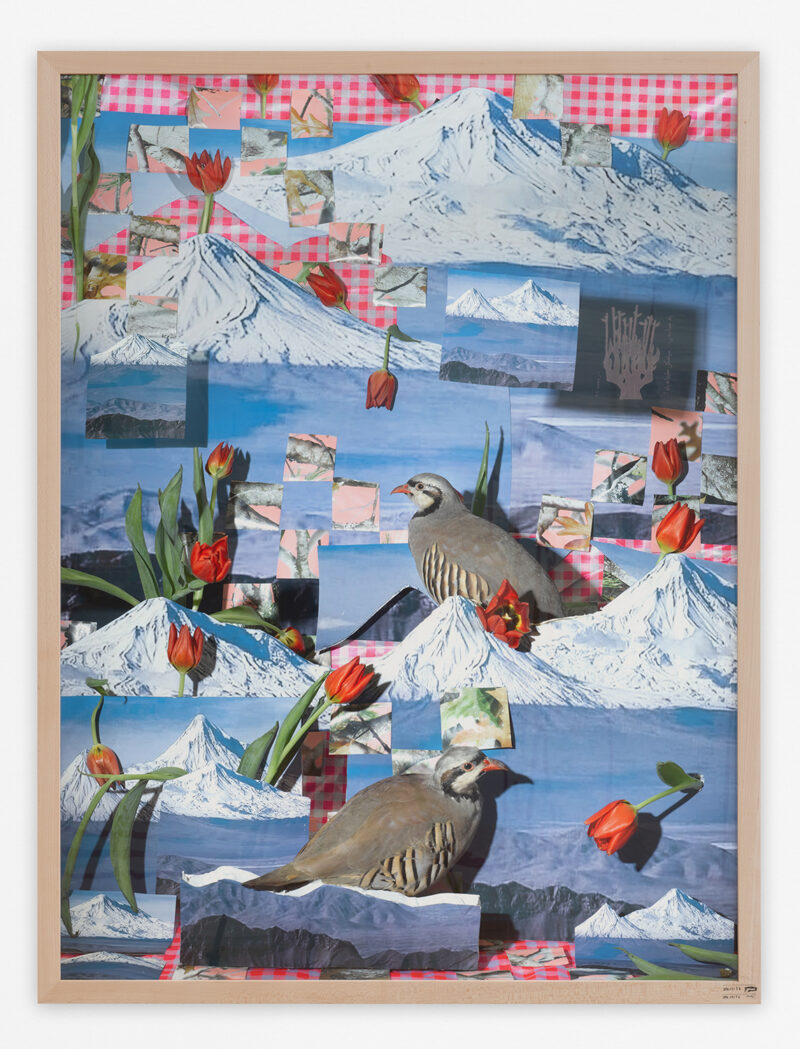
Sheida Soleimani grew up hearing about her parents’ political activism in Iran, and their eventual escape to the US to avoid persecution. Now, she’s sharing their stories in a new exhibit at the Museum of Fine Arts in Boston, Massachusetts. The World’s Bianca Hillier met Soleimani at the museum to learn more.
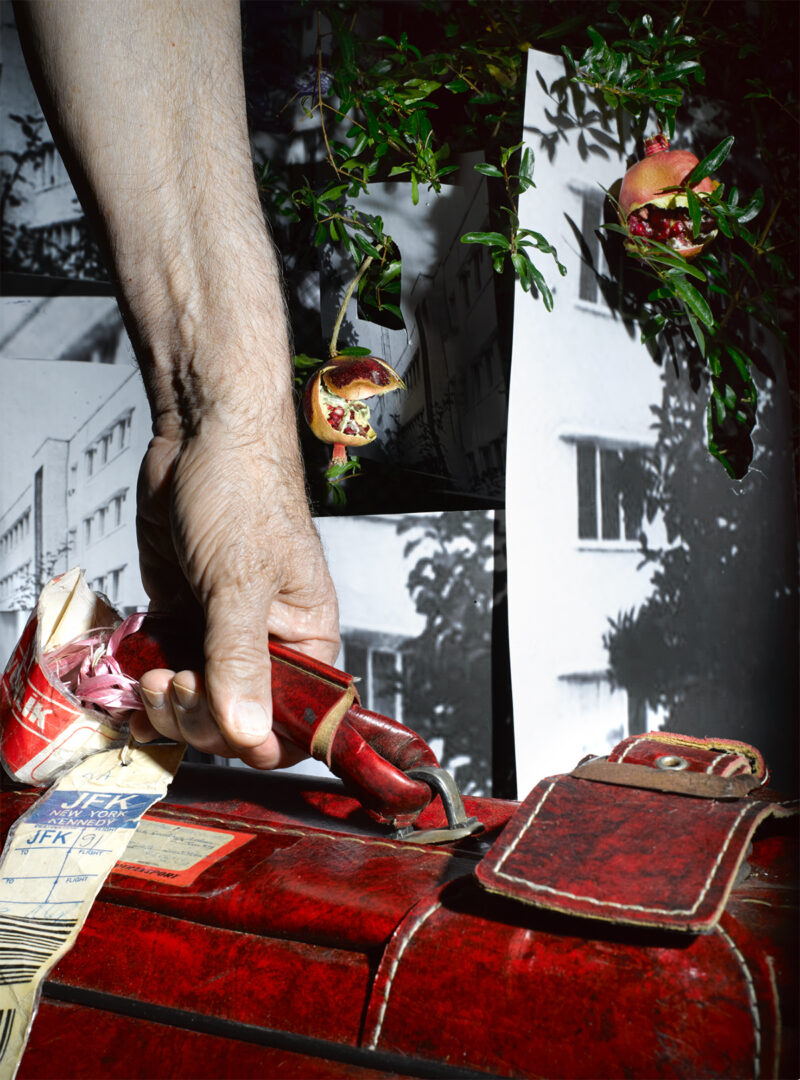
Sheida Soleimani grew up hearing about her parents’ political activism in Iran, and their eventual escape to the US to avoid persecution. Now, she’s sharing their stories in a new exhibit at the Museum of Fine Arts in Boston, Massachusetts. The World’s Bianca Hillier met Soleimani at the museum to learn more.
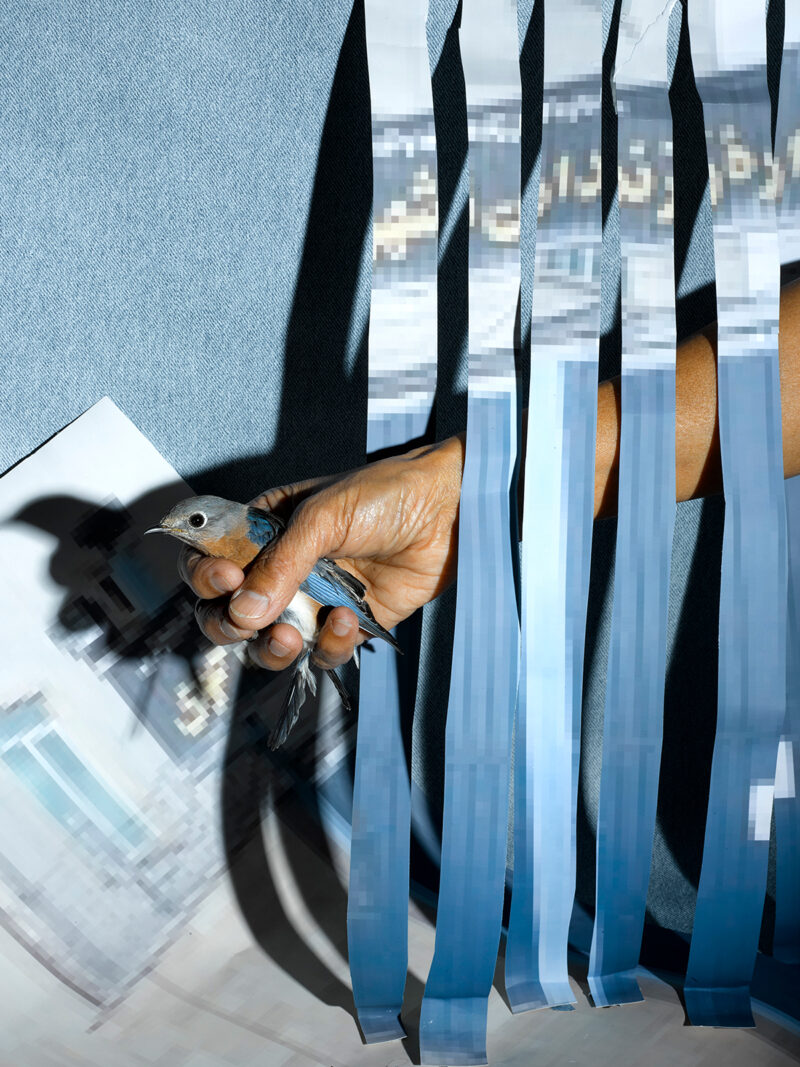
Artists to Watch This Month: 10 Solo Gallery Exhibitions to Seek Out in September in New York
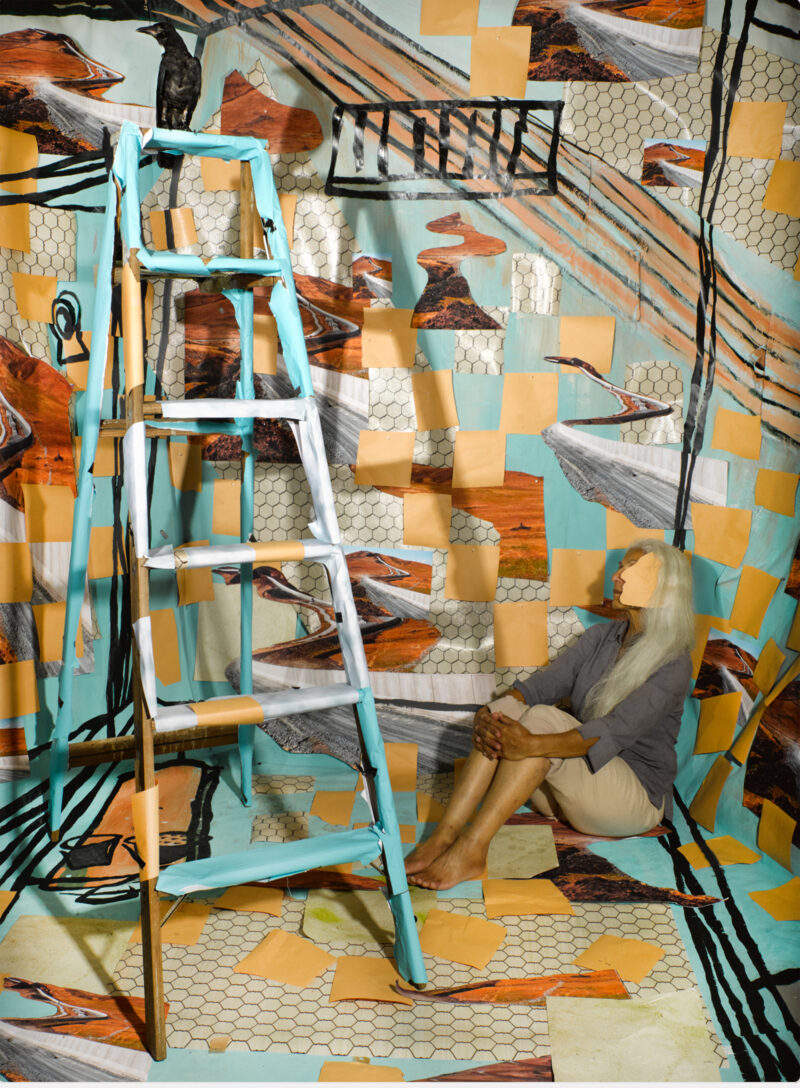
Using humor and satire in photographic assemblage, Sheida Soleimani highlights overlooked, misconstrued, and difficult themes that shape the human experience, examining in particular media representation of global issues.
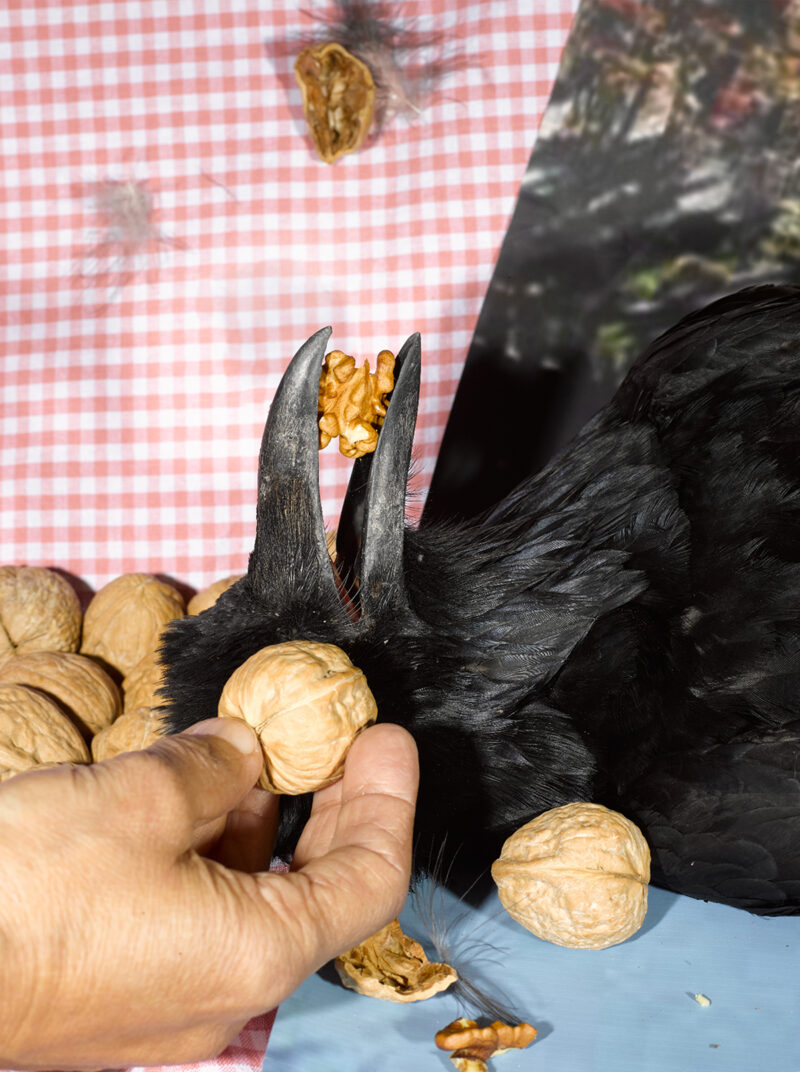
Sheida Soleimani’s work explores intersections of art and activism. She melds sculpture, performance, film and photography to highlight critical perspectives on events across the Middle East, unpicking the complex power dynamics between the region and Western nations.